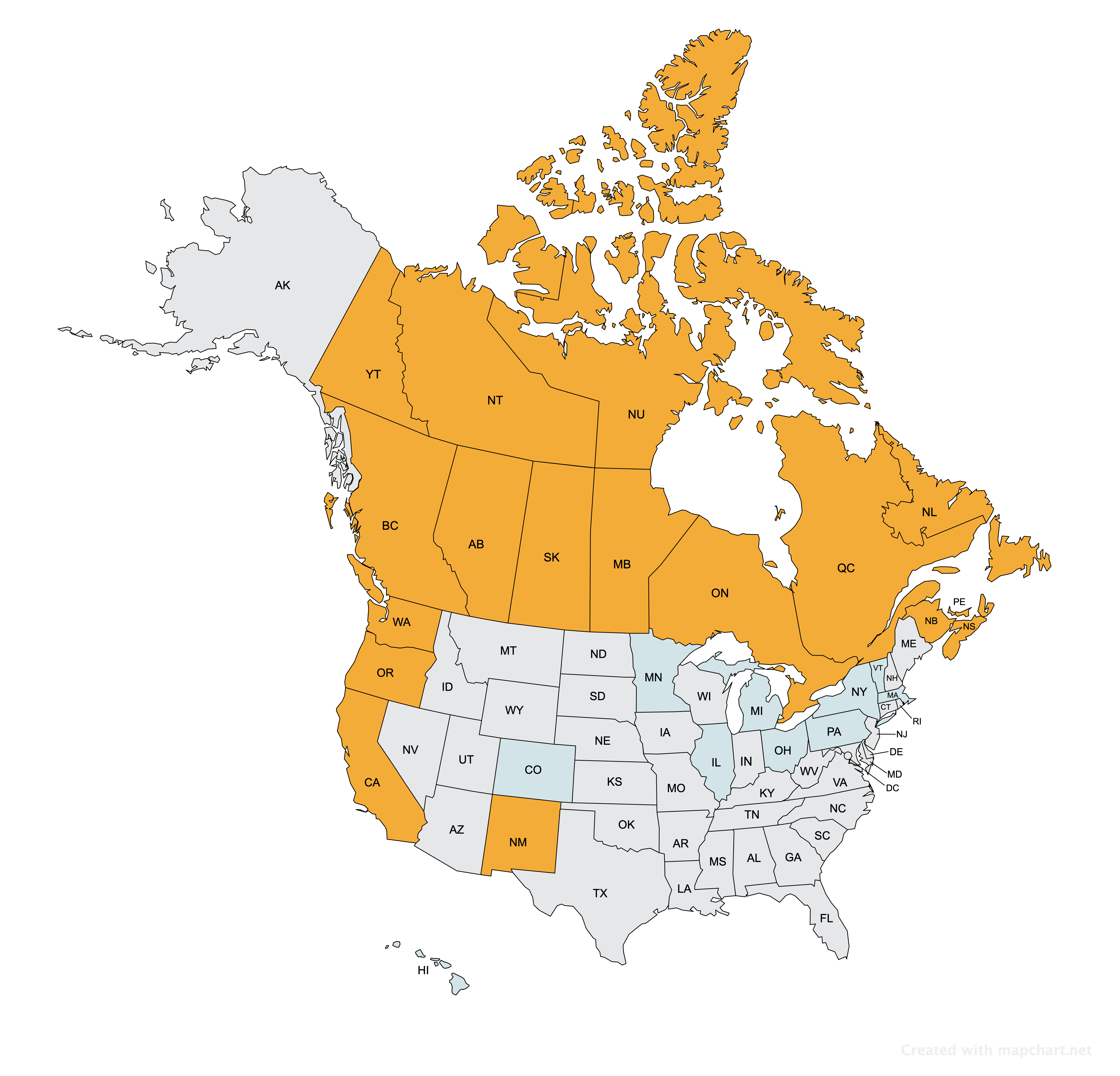
Illinois - Clean Transportation Standard
New Jersey - Low-Carbon Fuel Standard
Minnesota - Clean Fuel Standard
New York - Clean Fuel Standard
Pennsylvania- Low Carbon Fuel Standard
Colorado - Clean Fuel Standard
Massachusetts- Clean Fuel Standard
Hawai'i - Clean Energy Initiative
Ohio- Low Carbon Fuel Standard
Vermont -
Clean Fuels Program
Michigan -
Clean Energy Future Plan
